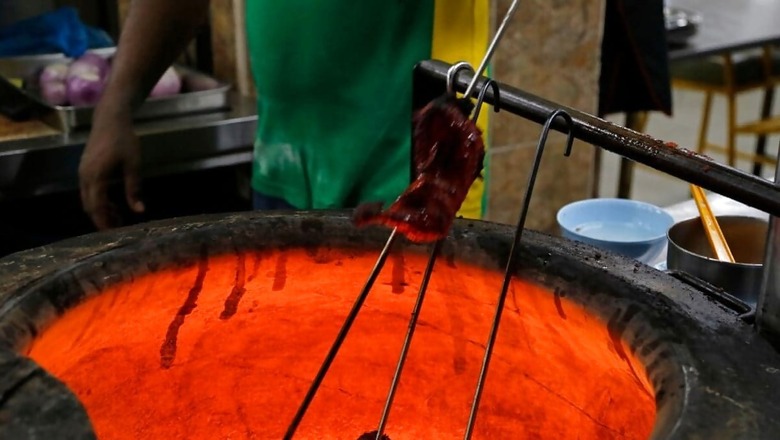
views
While the allure of tandoori cuisine may tempt food lovers, its environmental toll is becoming increasingly alarming for the city of Bhopal in Madhya Pradesh. Tandoors, known for their smoky flavour, emit harmful gases such as carbon dioxide and carbon monoxide, contributing significantly to the city’s deteriorating air quality. Despite a strict ban imposed by the National Green Tribunal (NGT) on the use of tandoors, their operation continues unabated in hotels, restaurants, and street vendors across the city, exacerbating pollution levels and posing serious health risks.
As of October 2024, the city’s Air Quality Index (AQI) stands at 178, classified as “moderate.” Experts warn that if pollution levels continue to rise, the health repercussions could be dire.
The NGT issued a comprehensive ban on tandoors and furnaces last year, yet many establishments are still operating these traditional cooking methods, releasing toxic smoke into the atmosphere. This reckless defiance has led to a surge in air pollution, particularly as the winter season approaches when the air quality further degrades in Bhopal.
Following the NGT’s directive in October last year, there was a brief crackdown by the Municipal Corporation and the Pollution Control Board, resulting in fines levied against over 30 establishments for non-compliance. 17 restaurants were sealed, and numerous tandoors were confiscated in an effort to curb this environmental crisis. However, in the year since, enforcement has waned, and the issue has fallen into neglect.
Municipal Corporation President Kishan Suryavanshi acknowledged the past efforts but admitted that renewed action may be necessary. “We had previously launched campaigns to enforce the NGT’s ban and are prepared to act again if required,” he stated. “Our goal is to maintain the Air Quality Index and adhere to the guidelines set by the NGT,” he further added.
The current pollution scenario in Bhopal highlights several key contributors:
- Dust accounts for 62.2% of air pollution
- Transportation contributes 13.0%
- Construction activities are responsible for approximately 12.1%
- Open garbage burning adds another 2.9%
Environmentalist Dr Subhash Pandey expressed serious concerns about the implications of open tandoor usage, particularly during the colder months. “The risk of air pollution escalates as low temperatures prevent toxic gases from dispersing,” he warned, adding that these gases lingered in the atmosphere, creating severe health risks. “It’s imperative that the Pollution Control Board and Municipal Corporation take decisive action,” he said.
Tandoors typically burn wood or coal, releasing harmful greenhouse gases, including methane, alongside carbon dioxide and carbon monoxide. The recent rains, combined with rising dust levels and ongoing tandoor operations, have pushed air quality to alarming levels. Without urgent measures to regulate tandoor usage and address other pollution sources, Bhopal’s air quality could deteriorate even further.
As Bhopal grapples with the dual challenges of culinary tradition and environmental health, the need for effective enforcement of regulations has never been more urgent. With the NGT’s ban still on the books, it is crucial for local authorities to revive their efforts and ensure compliance for the sake of public health and air quality.




















Comments
0 comment